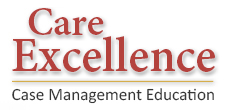Are you a case manager or care coordinator? Are you seeing your caseload growing? Do you have more patients with multiple, complex problems, many of whom lack self, social or family support in managing their conditions? It’s not surprising.
Joffe‐Walt in 2013 and Schmidt in 2012 published studies that illustrated that the combination of the recent recession, increasing income inequality, and more restricted welfare requirements have led to dramatic increases in the percentage of Americans on federal long‐term disability benefits who dually receive Medicaid support.
“Paradigm shift to focus on value and not volume as the indicator of success”
Add to this the fact that improved patient outcomes are paramount in this new era of health care with the paradigm shift to focus on value and not volume as the indicator of success (Jeffers & Astroth, 2013). Payment models are contingent on performance and quality outcomes (Morea & Urbano, 2014), which directly relate to improved care coordination within healthcare systems.
So, given the taller stack of cases to manage, and the complexity of each person’s situation, and outcomes expectations, how do you stay current with all the knowledge and skills that are expected of you?
Case Manager Shortage Solution Launched
Health care providers and insurers expressed concerns over both the overall shortage of case managers as well as the shortage of practicing case managers current with all relevant knowledge and skills, so a team including the CSU Shiley Institute for Palliative Care, the California Health Care Foundation, the SCAN Foundation, and representatives of health plans was formed to investigate how to address all of these challenges.
The result? The CSU Shiley Institute for Palliative Care is very pleased to announce it has developed a new educational program, Care Excellence, to provide continuing education support for all levels of care managers. Care Excellence is a comprehensive set of three levels of courses: the Foundational series, which supports skill development for new care managers or those looking for a refresher; Advanced Concepts deepens the contents to focus on specialized skills and populations; and Leadership – designed for those who manage or supervise care managers, to support growth of leadership skills.

July Event Announced
This important curriculum will be launching its first in the leadership series of courses in a face-to-face seminar hosted in Orange County California. On July 22, Best Practices for Improved Outcomes will be held at the Fullerton Marriott at California State University. This one-day, interactive in-person course focuses on:
- Collaboration and Brainstorming
- Understanding and Utilizing Quality and Performance Standards Data
- Problem Solving and Critical Thinking
- Communication: Open Dialogue and Cross Discipline Learning
Learn More About Best Practices for Improved Outcomes
Seasoned Case Managers Leading the Course
Rebecca Montano, Ph.D., MBA, CRC, CCM, CMC is a consultant with the California State University Shiley Institute for Palliative Care with 23 years of case management experience, 10 of which concentrated on aging and caregiver dynamics. She works as a professional geriatric care manager and Eldercare mediator. Dr. Montano has a Ph.D. in Human Services with a concentration in Geriatrics. She holds three industry certifications: Certificate of Rehabilitation Counseling, Certificate of Case Management, and a Care Manager Certificate.
Carol Lovci, R.N., M.S.N., CCM. is a case management specialist and a certified case manager. She is Associate Dean of Nursing with Independence College, a medical specialty instructor for California College of San Diego, and a nursing consultant for California Mentors. She is the recipient of California College of San Diego’s Teacher of the Year Award.
Care Excellence Underscores Institute’s Mission
The launching of Care Excellence gives even greater breadth and depth to the educational mission of the CSU Shiley Institute for Palliative Care, which is to help organizations and professionals gain critical education to meet the growing needs of chronically or seriously ill people in all care settings.




